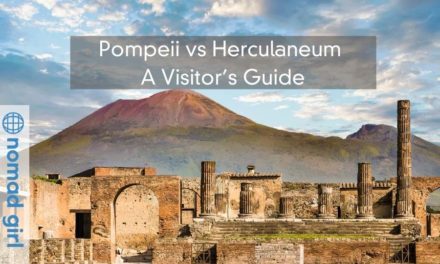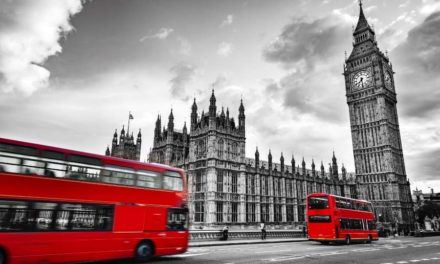Spain has always lured the dreamers, the free spirits, and in recent years, an impressive wave of digital nomads ready to pack up their laptops and soak in the Mediterranean life. With the launch of the Spain Digital Nomad Visa, remote workers from around the globe can finally call Spain their office.
It’s not just the sunshine, tapas, and siestas that make Spain alluring; the so-called “Beckham Law” (or Ley de Impatriados) offers highly attractive tax incentives. This law, named after the famous footballer who used it when he played for Real Madrid, promises potential tax breaks for new residents, which seems like a golden opportunity for digital nomads to save a bit while working in paradise.
Yet, applying for this coveted regime, especially for digital nomads, is not without its hurdles. Navigating the red tape of Spanish bureaucracy can feel like walking through a labyrinth with a blindfold. Here’s what digital nomads need to know about the Beckham Law’s benefits and the various pitfalls and challenges they may face along the way.
The Beckham Law Benefits – A Sparkling Bait for Digital Nomads
The Beckham Law, officially called the Ley de Impatriados, is Spain’s answer to the question of how to attract highly-skilled foreign talent.
Key Benefits of the Beckham Law
- Flat Tax Rate: Beneficiaries pay a flat 24% tax rate on income up to €600,000, instead of the progressive rates that can reach up to 45%.
- Limited Taxation: You’re only taxed on income earned in Spain, not on your worldwide income.
- Wealth Tax Advantage: You only pay wealth tax on assets located in Spain.
- Duration: The benefits last for up to 6 years – the year you become a tax resident plus the following 5 years.
This tax regime is a gem for those looking to establish a base in Spain without drowning in high tax rates, making it particularly attractive for high-earning professionals, entrepreneurs, and digital nomads.
For digital nomads, the Beckham Law’s allure lies in its simplicity and savings. Who wouldn’t want a set tax rate with no surprises? It’s one of the main reasons why so many flock to Spain’s sunny shores. However, like all that glitters, the path to securing these benefits has its own minefield of complications and confusing paperwork. Here’s where digital nomads encounter some real challenges.
Timing Constraints – The “Fast-Track or Fail” Clause
Timing is everything with the Beckham Law. To qualify, applicants must apply within six months of receiving Social Security approval, the A1, or a similar Certificate of Coverage (CoC). This might seem reasonable, but for digital nomads constantly jetting from one country to the next, these six months can slip by quicker than sand through an hourglass.
It’s not just about knowing the deadline; it’s about knowing the process to get there. Spain’s infamous bureaucratic sluggishness means even getting the A1 or CoC can take ages. If nomads miss this window, they’re out—no exceptions, no appeals. The bureaucratic red tape doesn’t budge, no matter how far you’ve travelled to be there.
Common Application Errors – A Legal Tightrope
Many digital nomads approach the Beckham Law application without fully understanding its requirements, leading to costly errors. The first blunder often lies in selecting the wrong application type. For instance, applying as self-employed instead of as an employee disqualifies candidates from Beckham Law benefits. Digital nomads may find themselves tangled in Spain’s web of tax definitions, not realizing that their freelance status might not meet the employee criteria the law mandates.
Dates are another stumbling block. Spanish authorities have a zero-tolerance policy for date discrepancies on Social Security documents. If the dates on the A1 or CoC don’t align with the application timeline or the documents are deemed “too old,” rejection is likely. For digital nomads who rarely keep the same time zone for long, managing precise dates on paperwork becomes a high-wire act, where one slip can mean starting from scratch.
Another common hurdle emerges for nomads who double as business owners or company directors. Applying as a company director often triggers Spanish tax authorities to classify the business as a “Permanent Establishment” in Spain. Essentially, this designation can tie the business’s tax residency to Spain, eroding any tax benefit and saddling nomads with potential corporate tax liabilities in Spain.
Employee Status Requirement – Freelancers Need Not Apply
The Beckham Law is designed primarily for employees, not freelancers or self-employed contractors, which excludes a significant portion of digital nomads who fall under these categories. While being self-employed is practically synonymous with the digital nomad lifestyle, Spain’s tax authorities won’t bend the rules for free spirits and gig workers. This employee-only criterion presents a steep hurdle for freelancers who may have to restructure their contracts or even negotiate with clients to receive employee status temporarily to qualify.
For digital nomads used to flexibility and independence, this rule may feel like trying to fit a square peg into a round hole. Spain isn’t budging on its traditional view of employment, and without some creative employment arrangements, freelancers face the choice of giving up the Beckham Law benefits or undergoing a radical career transformation.
Late Applications – A Bureaucratic Game of Chicken
Missing a deadline for the Beckham Law is not an option. Spain’s bureaucracy is strict on timeframes, and late applications will be denied outright, with no second chances. Unlike in some countries where authorities might show leniency or accept late submissions, Spanish officials approach deadlines with the rigor of a taxman scorned.
Digital nomads often underestimate the paperwork frenzy involved, believing that showing up with documents in hand will suffice. But Spain loves its paperwork. Each certificate, each date-stamped form must align perfectly, leaving no room for delays. For those used to a more laissez-faire approach to life, the Spanish insistence on punctuality might feel like a cruel twist, especially if they miss out on the tax breaks after investing time and resources into relocating to Spain.
Complex Financial Situations – When Dividends and Gains Become Taxing
Digital nomads with multiple income streams—dividends, capital gains, or international investments—face an added layer of complexity. The Beckham Law isn’t tailored for those with intricate financial setups typical of modern-day nomads who might draw income from diverse sources. For example, dividends and capital gains require careful planning to avoid inadvertently incurring extra tax liabilities.
To qualify for the Beckham Law, nomads must be fully prepared to untangle their financial web. It’s not just a case of simple income tax; each financial component needs careful documentation. Without the guidance of a tax expert, nomads risk wandering into Spanish tax quicksand. Ignoring the fine print on tax matters can turn into a bureaucratic nightmare.
For digital nomads hoping to make the most of the Beckham Law, preparation is key. Here’s what seasoned nomads recommend:
- Seek Expert Advice Early: Navigating the Beckham Law is not a solo adventure. A tax expert with a deep understanding of the law’s intricacies can prove invaluable, helping nomads sidestep the traps of Spanish bureaucracy.
- Plan for Employee Status: Digital nomads may need to get creative to qualify as an employees. This might mean working through an intermediary, negotiating terms with clients, or even restructuring how they operate. While it may seem like a headache, this approach can open the door to the Beckham Law’s tax advantages.
- Date Management: Ensure all relevant certificates, especially the A1 or CoC, have dates that align with the Beckham Law application timeline. For an A1, setting the end date at two years minus one day from the start date can provide the necessary coverage.
- Prepare Financial Documents: Before applying, nomads should evaluate their financial situation, particularly if they receive dividends, capital gains, or other income from outside Spain. Comprehensive preparation can prevent unwelcome surprises and improve the application’s chances of success.
Final Thoughts – Is the Beckham Law Worth the Hassle?
Spain’s Beckham Law, though attractive on paper, requires a strategic approach for digital nomads to benefit from its tax breaks. Between navigating complex tax forms, managing application timing, and meeting employee status criteria, the process can feel like a Herculean task. And for those unfamiliar with Spain’s love of paperwork, the entire experience can be a lesson in patience and precision.
However, for those willing to tackle the maze of Spanish bureaucracy, the Beckham Law offers a chance to reduce tax burdens and enjoy Spain’s vibrant culture without sacrificing financial health. For digital nomads who successfully overcome these challenges, the benefits far outweigh the obstacles. And as they settle into their Spanish lifestyle, they might just find that the extra effort was well worth the reward—whether they’re sipping sangria on a sunny terrace or thriving in Spain’s growing digital nomad community.


















